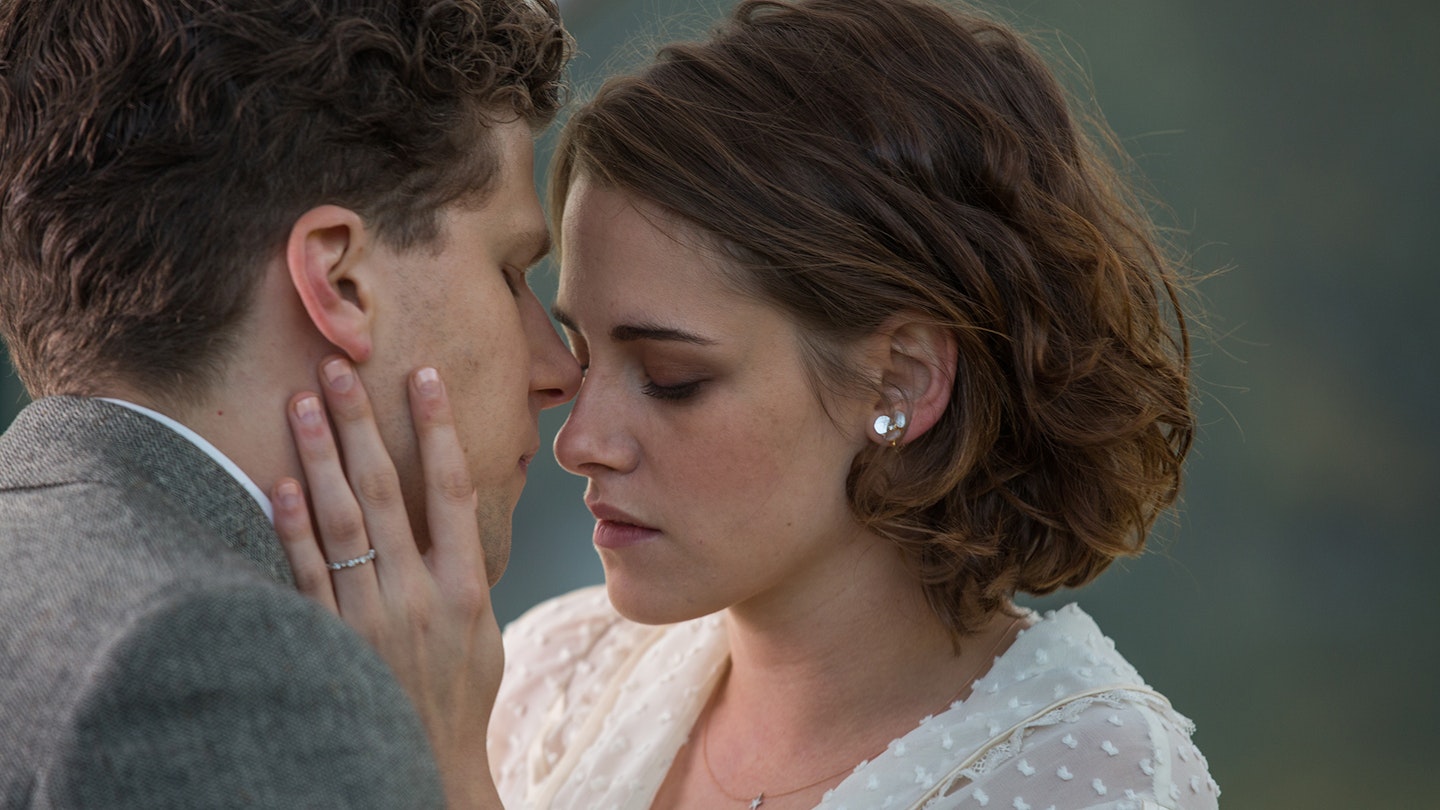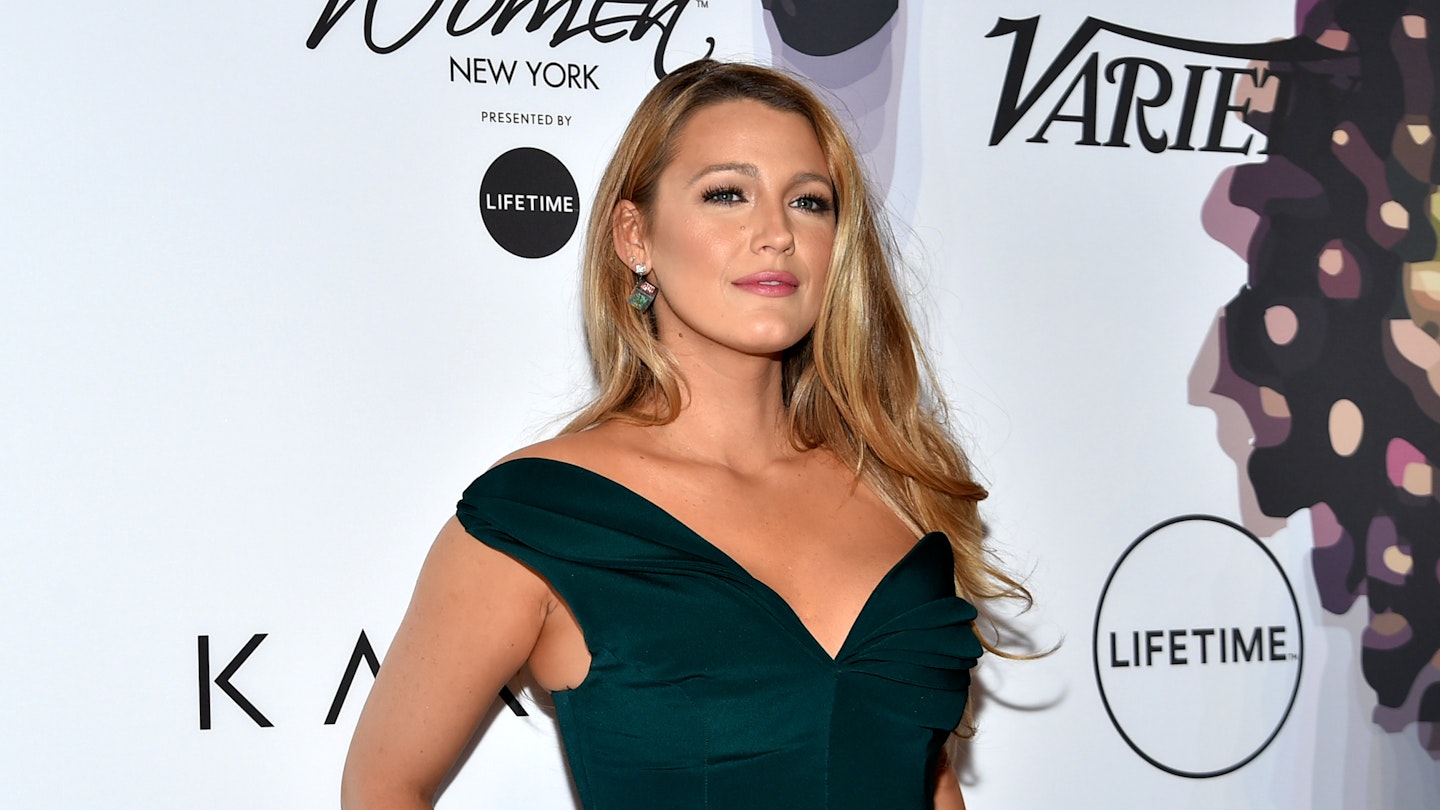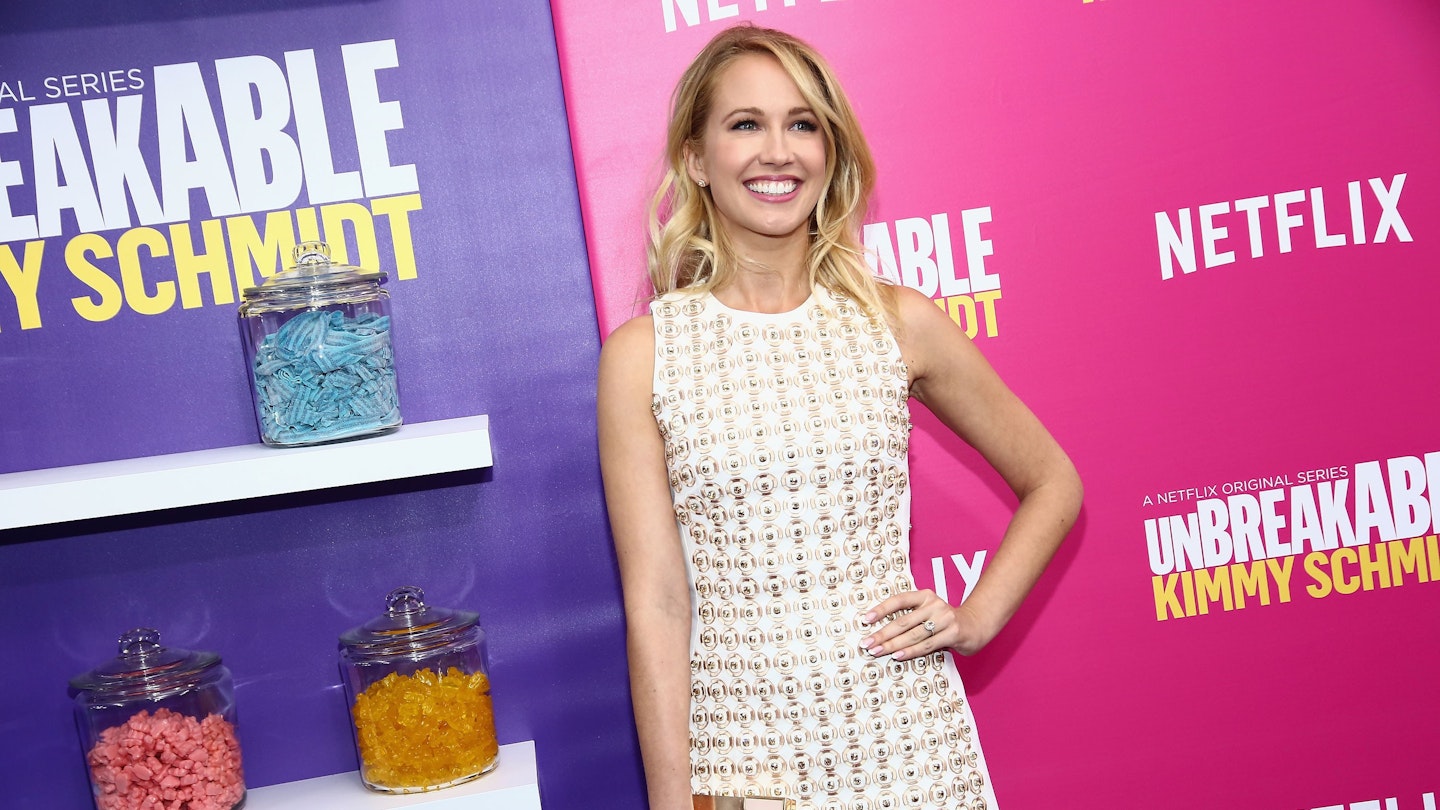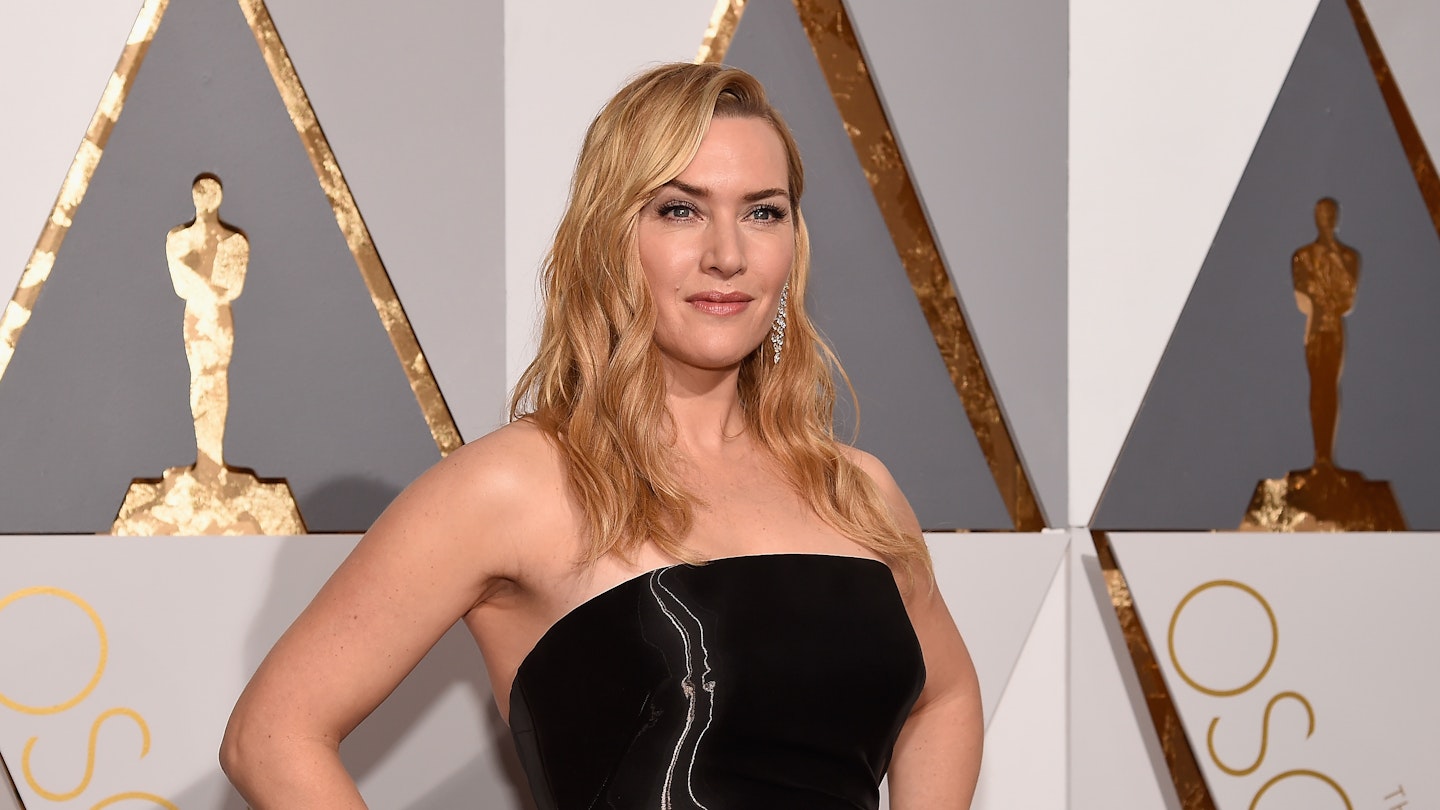Café Society has enough charm, smarts and jokes to initially fool you it's another of Woody Allen’s trademark returns to form. The truth is it falls far short of his ’70s and ’80s highs, so it’s perhaps best we compare it to the more recent Allen canon. So: it doesn’t hit the heights of Midnight In Paris or Blue Jasmine, but is fizzier than Magic In The Moonlight or Irrational Man, thriving on a clutch of great performances, great visuals and an affection for a Hollywood that doesn’t exist anymore (if it ever did).
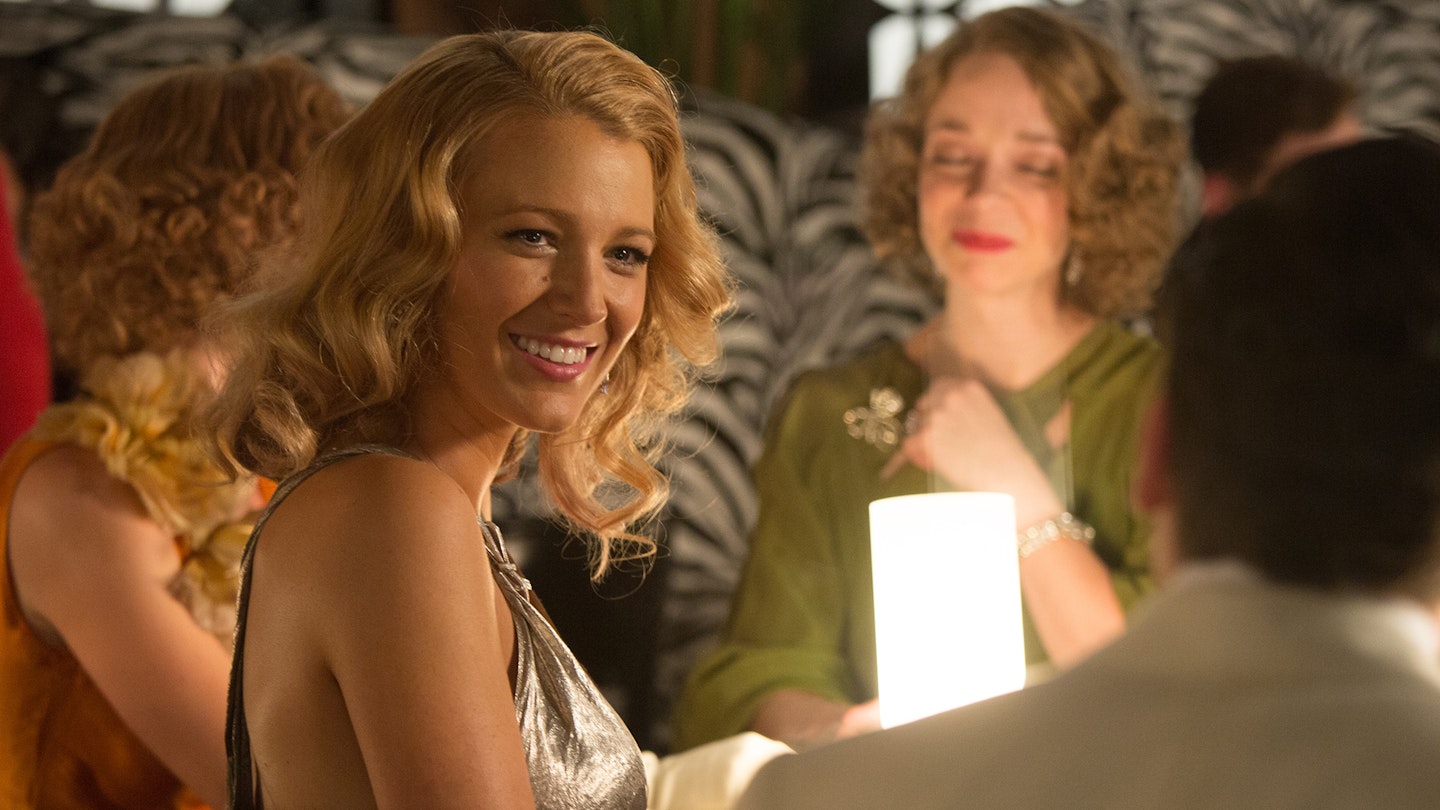
Café Society confirms Kristen Stewart as one of the most exciting talents working today.
Allen’s 47th feature follows the familiar formula: mensch-y heroes, romantic obstacles, funny one-liners (“Live every day like it’s your last and one day you’ll be right”) and musings about mortality all played out to a soundtrack of jazz tunes. Like Annie Hall, Café Society thrives on the push and pull between Los Angeles and New York. Like Bullets Over Broadway, it effects a collision between the artistic world and the underworld, exemplified by Bobby’s (Eisenberg) gangster brother (Corey Stoll) forever burying his rivals in concrete. And, as Bobby returns to New York to run a nightclub, it has a Radio Days quality – spinning a series of vignettes (narrated by Allen in a stilted drawl) that juxtapose the domestic comedy of Jewish family life with the glam of high society.

It's intelligently cast: after Adventureland and the flawed but interesting American Ultra, Eisenberg and Stewart have an easy chemistry, a naturalness that makes a rote courtship engaging. Café Society may get nowhere near the emotional wallop (or sharp laughs) of Annie Hall but Allen still finds affecting things to say. As Bobby and Vonnie come together and move apart (and come together again?), it becomes a film about the romantic roads never travelled and the poignant ways in which change is inevitable.
Eisenberg starts the movie as a neurotic Allen surrogate — a scene where he gets flustered with a prostitute (Anna Camp) is peak Woody — but neatly conveys Bobby’s growing confidence and sense of something missing. But Stewart steals the movie. Her Vonnie starts the movie as someone grounded and real, unfazed by Hollywood pizzaz, but Stewart slowly reveals different colours, investing Allen’s very writerly language with life and conveying depths with just a look. This, plus her work with Olivier Assayas (Clouds Of Sils Maria, Personal Shopper), confirms her as one of the most exciting talents working today. Twilight suddenly seems a long time ago.
And despite the recognisable Allen motifs, there are also firsts. Café Society is his first film shot digitally and his first with noted cinematographer Vittorio Storaro (Apocalypse Now, Last Tango In Paris). The result is his most gorgeous film in ages, from the beautiful silhouettes in a motel room during a power cut to the camera snaking through Bobby's nightclub, like a golden age GoodFellas. It's been a long time since Allen has been so cinematically ambitious. He should try it more often.
